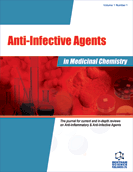Abstract
Bacterial biofilms on medical devices are a primary source of infection, and efforts have been made to develop means of decontaminating colonized devices including hemodialysis catheter “lock” solutions. Because bacterial biofilms are inherently resistant to many antibiotics and widespread use of antibiotics contributes to resistance development, there is a need for new approaches to biofilm eradication. We have developed a class of compounds, termed ceragenins, that mimic the antimicrobial activities of antimicrobial peptides. The ceragenins are active against established biofilms. We tested solutions of a lead ceragenin, CSA-13, with and without EGTA against biofilms comprised of Gram-negative and positive organisms. Similar solutions containing ciprofloxacin were used as comparators. The ceragenin solutions eradicated biofilms at concentrations comparable to those required for eradication by ciprofloxacin. However, against a methicillin- resistant strain of Staphylococcus aureus, CSA-13 proved to be far superior to ciprofloxacin.
 14
14





















